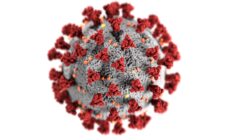Hepatitis B is the infectious disease of the liver. The liver cells are damaged by the attack of hepatitis B virus (HBV) – a DNA virus belonging to the family HEPADNAVIRIDAE. Other viruses attack liver cells are hepatitis A and hepatitis C viruses. All these viruses differ in structures and symptoms they produce. Inflammation is the reaction to infection. Even the immune system response to the presence of the hepatitis B virus damages the liver cells.
Transmission of hepatitis B virus (HBV):
The transmission of hepatitis B virus occurs mainly through the following modes
-
- Exposure or contact with the infected blood by transfusion or any means.
-
- Exposure to the infected body fluids like semen, vaginal discharge and breast milk.
-
- Sexually transmitted from the infected person.
-
- During birth transmitted from infected mother to child.
-
- Using contaminated virus infected needles.
- Using the razors and toothbrushes of the infected person.
Hepatitis B virus is not transmitted through food and water.
Signs and symptoms of hepatitis B:
-
- Feverish feeling all the day.
-
- Loss of appetite – desire to eat is disturbed or reduced.
-
- Severe vomiting or disturbed feel of stomach.
-
- Fatigue – excessive tiredness.
-
- Severe diarrhea.
-
- Jaundice – yellowish color change seen in the skin
-
- Muscle aches
-
- Joint pains.
-
- Severe head ache.
-
- Dark color changes in urine.
- Whole body weakness with low energy.
These are the symptoms commonly seen in hepatitis B infected person.
Complications:
The infection of hepatitis B virus can produce severe symptoms and damages the liver function to eliminate or filter toxic substances from the body. This condition prolongs and produces following complications.
-
- Cirrhosis of liver – formation of irreversible scar tissues.
-
- Liver cancer – cancerous cell formation in the liver.
- Liver failure – failure of liver to function normally.
Diagnosis of hepatitis B:
BLOOD TEST: The hepatitis surface antigen test – this test shows the active hepatitis B infection and its ability to transmit to others. Antibody for hepatitis surface antigen test – presence of antibodies shows the infected persons immune response for virus infection or by already given vaccination. Antibody for hepatitis surface antigen core test – presence of antibody against the surface antigen core reveals or confirms the chronic infectious condition of the virus. LIVER BIOPSY: A sample of liver tissues are taken and tested under laboratory circumstance to detect the extent of liver damage. LIVER FUNCTION TEST This test also shows the extent of the damage of liver cells. DNA test: Testing the DNA of the virus, viral stack can be identified.
Treatment of hepatitis B:
MEDICATIONS: Few commonly used drugs are
-
- INTERFERON ALFA 2B
-
- PEGYLATED ALFA 2A
-
- LAMIVUDINE
-
- ENTECAVIR
-
- TENOFOVIR
-
- ADEFOVIRDIPIVOXIL
- TELBIVUDINE
Prevention of hepatitis B:
-
- VACCINATION is the best method to prevent HEPATITIS B infection. People of all ages should be completely be vaccinated.
-
- Complete analysis of blood during transfusion.
-
- Avoid using the contaminated needles.
-
- Avoid the sharing of razor and toothbrushes with the infected person.
-
- Avoid direct exposure to the infected person’s blood and other body fluids.
-
- Avoid multiple sex partners.
-
- Avoid travelling to the most prevalent countries.
- Men should avoid having sex with men.
Conclusion:
Hepatitis B is one of the common diseases seen in the world. It is easily preventable with the vaccination methods and with various advanced treatment modalities. Few people doesn`t know they are infected. Early diagnosis and treatment prevent the serious condition of liver and life threatening can be avoided.





